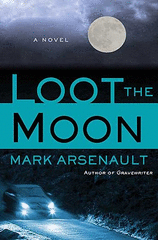Carla Buckley
Carla Buckley is the author of the forthcoming debut novel, The Things That Keep Us Here (February 2010).
From a Q & A at her website:
Why did you choose to write about an avian influenza pandemic?Visit Carla Buckley's website.
A: Being married to a scientist allows me unfiltered access to some pretty amazing information. At the time, my husband was conducting research into bird flu and regularly bringing home frightening reports. One night, I had a nightmare so vividthat I called my sister the next morning to share. After I was done speaking, there was silence. Then she said, "This is the story you need to write." That story became THE THINGS THAT KEEP US HERE.
Do you keep emergency supplies on hand?
A: When I realized the only thing I could do to prepare was stockpile food and water, I went to the grocery store and loaded up my cart. Twice. I also made sure to stock up on pet food, batteries, flashlights, a first aid kit, including respiratory masks, and things to keep my kids entertained if we ended up being quarantined—books, paper, craft supplies. I figured if we didn't end up needing any of it, we could recycle through them, and I could replenish when flu season returned.
Does the current H1N1 pandemic worry you?
A: I've done too much research for THE THINGS THAT KEEP US HERE to be complacent. In fact,...[read on]
--Marshal Zeringue




































